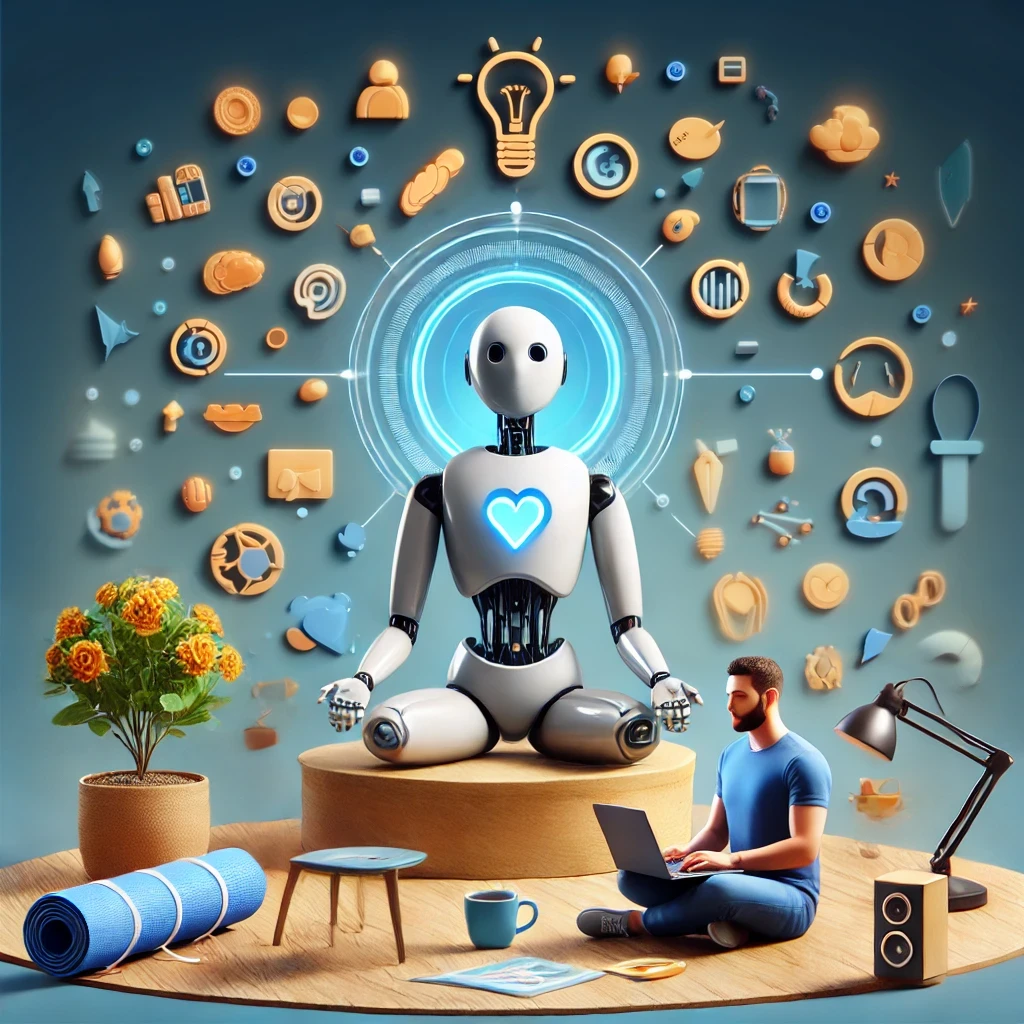Artificial intelligence, particularly through language models like GPT, is making strides in supporting personal growth, motivation, and self-improvement. AI’s ability to process large volumes of information and generate personalized feedback makes it a valuable tool for individuals seeking guidance, motivation, and new insights into their personal and professional development. By incorporating AI into coaching and self-improvement practices, individuals can explore structured self-reflection, set achievable goals, and receive real-time feedback. This article delves into the various ways AI, specifically language models, is being utilized for personal growth and the potential benefits of AI-driven coaching.
AI as a Personal Coach
AI-powered language models are increasingly used as virtual personal coaches, offering individuals support in setting and reaching goals, developing healthy habits, and building positive mindsets. Through natural language processing (NLP), these models can engage in conversation, providing thoughtful responses based on user input. This allows AI to help users identify their goals, track progress, and make adjustments as they work towards self-improvement. Additionally, AI models can use motivational techniques, offer encouragement, and keep users accountable.
A key advantage of using AI as a personal coach is its availability and consistency. Unlike traditional coaching, which typically requires scheduled sessions, an AI-driven coach is accessible 24/7. This accessibility allows users to interact with the AI whenever they feel the need for guidance or reflection. Moreover, AI’s objective approach ensures that feedback is unbiased, helping users focus solely on their goals and personal development.
Setting Goals and Tracking Progress with AI
Goal-setting is a fundamental aspect of personal growth, and AI can assist users in setting clear, achievable goals. Language models can guide users in formulating goals by breaking them down into manageable steps and setting realistic timeframes. For instance, an individual wanting to improve their physical fitness might work with an AI model to set a weekly exercise routine, plan meals, and track weight loss progress.
Tracking progress is another area where AI excels. Through regular check-ins and progress evaluations, language models can help users maintain momentum and stay on course. For example, an AI tool could prompt users to report on their goals at set intervals, offering encouragement and suggestions for overcoming any obstacles they may encounter. The consistent tracking provided by AI not only reinforces accountability but also helps individuals see tangible results, which can boost motivation and self-confidence.
AI-Driven Journaling and Self-Reflection
Journaling is a powerful tool for self-reflection, allowing individuals to examine their thoughts, feelings, and behaviors. Language models like GPT can guide users in this process by offering prompts and questions that encourage deeper introspection. For example, an AI might prompt a user with questions like, “What were the main challenges you faced today, and how did you address them?” or “What are three things you’re grateful for this week?” These questions help users focus on positive aspects of their lives, identify patterns in their behavior, and develop a stronger self-awareness.
In addition to journaling, AI models can provide analytical insights based on the user’s responses. By analyzing recurring themes or emotional patterns, AI can suggest areas for improvement or highlight achievements that users might overlook. This approach helps individuals gain valuable insights into their mental and emotional states, fostering a mindset conducive to growth and resilience.
Personalized Learning and Skill Development
Another application of AI in personal growth is personalized learning and skill development. Language models can help users build new skills by providing tailored resources, learning paths, and exercises based on their unique interests and needs. For instance, someone interested in improving their communication skills could receive guidance on effective speaking techniques, writing exercises, or recommendations for relevant reading materials.
AI-driven platforms can track a user’s progress and adapt learning materials accordingly. If a user struggles with a particular concept or skill, the AI can adjust its suggestions to offer more foundational material or provide alternative explanations. This personalized approach helps individuals learn more effectively, making the process of skill acquisition both efficient and enjoyable.
Motivation and Positive Reinforcement
Maintaining motivation is one of the most significant challenges in any self-improvement journey, and AI can be an invaluable tool in providing positive reinforcement. Language models are designed to offer motivational support by sending reminders, encouraging progress, and celebrating achievements. For instance, an AI might send an uplifting message after a user completes a challenging task or encourage them to continue when they reach a milestone.
Additionally, AI can help users reframe negative thoughts and foster a positive mindset. If a user expresses self-doubt or frustration, the AI can offer constructive feedback and suggest ways to cope with these feelings. This type of support can be especially beneficial for individuals working through mental barriers or struggling to stay motivated during difficult times.
AI for Building Mindfulness and Emotional Well-Being
Mindfulness and emotional well-being are essential components of personal growth. Language models can guide users in mindfulness practices by providing prompts for breathing exercises, meditation, and other stress-relief techniques. For example, an AI-powered app might suggest a five-minute meditation exercise for users feeling overwhelmed or guide them through a visualization exercise to help reduce anxiety.
Emotional well-being is another area where AI can play a supportive role. By analyzing language patterns, AI can detect emotional changes or patterns that indicate stress or other mental health challenges. This feedback can prompt users to address these feelings, seek additional support, or engage in self-care practices. AI’s ability to provide consistent, gentle reminders about mental well-being fosters a balanced approach to personal growth, helping individuals prioritize both productivity and emotional health.
Privacy and Ethical Considerations
While the benefits of AI in personal growth are vast, privacy and ethics remain critical concerns. As language models gather and analyze sensitive information, it is essential for AI systems to ensure user privacy and data protection. Users must be able to trust that their personal reflections and goals are secure, with data management practices aligned with privacy regulations like GDPR.
In addition, ethical considerations around dependency and reliability should be taken into account. Relying on AI for self-improvement guidance must be balanced with personal agency, and users should remain aware that AI-generated advice may not always reflect human insights or emotional nuances. Ethical AI practices include transparency about limitations, responsible data usage, and encouraging users to seek human support when needed.
Conclusion
The integration of AI into personal growth and self-improvement practices offers transformative possibilities. From personalized coaching and goal tracking to fostering mindfulness and emotional well-being, language models are proving to be powerful allies in helping individuals reach their full potential. By providing real-time feedback, encouragement, and personalized guidance, AI-driven tools empower users to take control of their personal development journey in ways that were previously unimaginable. With a focus on privacy, ethics, and personal agency, AI is paving the way for a new era of self-improvement, where individuals can access tailored support whenever they need it, fostering lasting growth and resilience.



AI as a coach? That’s a bit too much. Who knows what advice the AI will give?
So you got to think it over before doing what it offers you, not a big deal xD
Pretty soon, jobs like life coaches might disappear. AI can give all the advice you need—it’s unbiased and thinks way broader than most people, at least that’s how I see it.
Yeah, but it be using unverified or straightup fake
I even tried to use it as a psychologist and I can say it’s damn good
the information base that AI possesses is limitless
of course, it can answer any query
it’s a pity that people may be devalued because of this..
AI for self-improvement? 🤔🌱 Personalized coaching? Sounds cool! But is it really personal? Privacy is key! 🔑
ya im hold same view! privacy very important in internet! 👍👍
ai coach seems sus 🤔 idk if i trust
gpt coach so clutch 👍👍helps me lvl up!